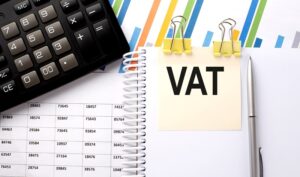
Deferring gains using Incorporation Relief
Thinking of transferring your sole trader or partnership business into a limited company? Incorporation Relief can help defer any capital gains tax on assets like goodwill. If the entire business is
+01235 250011

Thinking of transferring your sole trader or partnership business into a limited company? Incorporation Relief can help defer any capital gains tax on assets like goodwill. If the entire business is

From 6 April 2025, the remittance basis for non-doms is abolished. A new UK tax regime now applies to non-domiciled individuals, focused solely on residence. New arrivals can benefit from a 4-year

From April 2025, Agricultural Property Relief from Inheritance Tax now extends to land under qualifying environmental agreements. This means landowners entering long-term stewardship schemes will not

Running more than one self-employed business? HMRC will not always treat them as separate. Whether they are taxed as one combined trade or multiple depends on how your activities relate to each other.

Parents of 16-19-year-olds: confirm your child’s continued education or training by 31 August 2025 to keep Child Benefit payments going. Last year, over 870,000 families updated HMRC, most online. It

When someone agrees to become a director of a UK limited company, they take on a set of legal responsibilities defined under the Companies Act 2006 and other relevant legislation. These duties are not

A trade mark is a vital tool for protecting the identity and reputation of your business. It can take the form of a name, logo, slogan, shape, or even a sound, and once registered, gives you exclusive

An Employment Tribunal confirmed that using an employer’s preferred method of communicating with employees to send offensive messages can serve as a ground for dismissal. A claimant was employed from

Considering VAT deregistration? Whether compulsory or voluntary, knowing the rules, deadlines and risks of delay can save your business from costly penalties.
The decision to deregister for VAT may

Tax perks for Furnished Holiday Lets have ended. From April 2025, lettings fall under standard rental rules. Check the transition rules to avoid surprises.
The tax advantages that were previously
Phone: 01235 250011 Fax: 01235 250022
28 The Quadrant, The Science Park, Barton Lane,
Abingdon, OX14 3YS
Oxonaccountancy © 2024
All Rights Reserved.


Subscribe to our mailing list and get interesting stuff and updates to your email inbox.
Thank you for subscribing.
Something went wrong.
We respect your privacy and take protecting it seriously